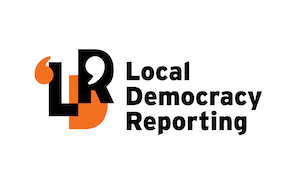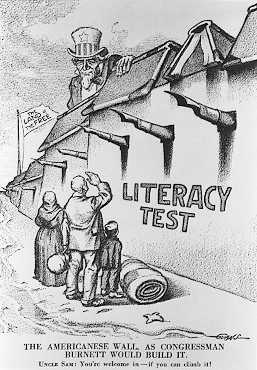Sometimes as I read books I like to simultaneously summarize them in my own words to facilitate the intellectual digestion. And also to post my notes online later on, in the probably vain hope of diffusing knowledge to young people and non-academics. I’ve been reading a couple of books on the rise of political conservatism in the last several generations, and since nothing is more important to the future than combating conservatism, I’m going to jot down some notes here. As a historian, I’m familiar with the story and have read quite a few works on the subject. (E.g., this one.) Nevertheless, Kim Phillips-Fein’s Invisible Hands: The Making of the Conservative Movement from the New Deal to Reagan (2009) and Nancy MacLean’s Democracy in Chains: The Deep History of the Radical Right’s Stealth Plan for America (2017) are interesting enough to warrant some summarizing.
One of the useful functions of the latter book, in particular, is that it brings force and clarity to one’s prior knowledge of the dangers of right-wing libertarianism, or more generally anti-government and pro-“free market” thinking. In fact, this sort of thinking is an utter catastrophe that threatens to destroy everything beautiful in the world. I know that sounds like an absurd exaggeration, but it’s not. What with society and nature teetering on the brink, it’s the literal truth. I suppose the reason leftists don’t always take right-wing libertarianism as seriously as it deserves—despite their deep awareness of the evils of capitalism—is simply that it’s embarrassingly easy to refute. It’s a childish, simplistic, vulgar hyper-capitalist ideology that, once you examine it a little, quickly reveals itself as its opposite: authoritarianism. Or even totalitarianism, albeit privatized totalitarianism. Noam Chomsky, as usual, makes the point eloquently:
… Here [in the United States] the term ‘libertarian’ means the opposite of what it meant to everybody else all through history. What I was describing [earlier] was the real Adam Smith and the real Thomas Jefferson and so on, who were anti-capitalist and called for equality and thought that people shouldn’t be subjected to wage-labor because that’s destructive of their humanity… The U.S. sense [of ‘libertarian’] is quite different. Here, every word has taken on the opposite of its meaning elsewhere. So, here ‘libertarian’ means extreme advocate of total tyranny. It means power ought to be given into the hands of private unaccountable tyrannies, even worse than state tyrannies because there the public has some kind of role. The corporate system, especially as it’s evolved in the twentieth century, is pure tyranny. Completely unaccountable—you’re inside one of these institutions, you take orders from above, you hand them down below…there’s nothing you can say—tyrannies do what they feel like—they’re global in scale. I mean, this is the extreme opposite of what’s been called libertarian everywhere in the world since the Enlightenment …
“Libertarianism,” in short, is a bad joke: morally hideous, theoretically flawed, and empirically without merit. (For instance, it’s well known among economic historians, or should be, that the only way countries have ever industrially developed is through radical state intervention in the economy, which is also the reason that today we have technologies like electronics, the internet, aviation and space technologies, pharmaceuticals, nuclear energy, containerization in shipping, biotechnology, nanotechnology, green technologies, even mass production and electric power.) Still, the simplistic dogma has to be taken seriously and combated because of the incredible damage it has done worldwide, by, for example, justifying state withdrawal of support for vulnerable populations and deregulation of industries that are consequently destroying the natural environment.
Even people and policymakers who aren’t actual libertarians (in the perverted right-wing American sense) have almost always been influenced by pro-market ideologies, because two centuries of global propaganda have made their mark. I don’t want to say markets are necessarily and always, even on small local scales, destructive; I’m only saying that the denigration of government relative to markets is horribly misguided. Besides, what does “the market” even mean? When people talk about “the free market,” what are they talking about? Markets, at least national and international ones, have always been shaped and structured and created and manipulated by states. That’s a truism of economic history. Just read Karl Polanyi’s classic The Great Transformation (1944). “The market” is a meaningless abstraction, an idealization that distracts from the innumerable ways states create rules to govern market interactions, rules that favor certain actors and disadvantage others. No national or international market has ever been “free” of political constraints, structures, institutions, rules that are continually contested and shaped by interest groups in deadly conflict with each other.
Conservative ideologues such as most economists, especially so-called libertarians, always prefer to traffic in idealizations (for instance the neoclassical fetish of mathematical models or the “libertarian” fetish of “the market”) and ignore history because, well, history is inconvenient. Reality mucks up their dogmas. Actual investigation of labor history, economic history, political history, social history leads to such subversive notions as that if workers had never organized, the mass middle class would never have existed. Or that capitalist states have consistently acted for the (short-term or long-term) benefit of the capitalist class or some section of it. Or that classes exist at all! It’s much safer to follow the Milton Friedmans and Friedrich Hayeks and talk only about “freedom,” “economic liberty,” “the market,” “the price mechanism,” “labor flexibility,” and other things that abstract from real-world conditions. It’s also less intellectually and morally arduous. Materialism—historical materialism—leads to revolutionary conclusions, so let’s stay on the level of abstract ideas!
What an obscenity that capitalism is considered synonymous with freedom! When ideologues prate about “economic liberty” or “the free society,” the obvious question is: whose liberty? The liberty of a Jeff Bezos to pay a non-living wage is premised on the inability of millions of people to find a job that will pay more. And when, as a result, they’re (effectively) coerced into taking that minimum-wage job—because the alternative is to starve—their low income vitiates their “liberty” to realize their dreams or have a decent standard of living. Charles Koch, say, has the freedom and ability to influence policymakers at the highest level; in a radically unequal society, most citizens do not have that freedom or ability. A billionaire (who likely inherited a great deal of money) has a heck of a lot more “economic freedom” than the rest of us. But he whines about his lack of freedom because of burdensome government regulations, taxes, and irritating labor unions. If only he could get rid of these obstacles he’d have more freedom—to pay his workers less, fire them for any reason, pollute the environment, and charge consumers more. The “freedom” of the right-wing libertarian is the freedom to dominate others. (More specifically, the freedom of the capitalist to dominate others.)
The truth is that socialism, or popular democratic control of the economy, entails not only more equality but also more widespread freedom. For example, in an economy of worker cooperatives, people would be free from coercion by a boss (because collectively the owners of a cooperative are their own boss). Even in a social democracy, people generally have the means to realize more of their desires than in a neoliberal economy where much of the population lives in poverty. Similarly, the more public resources there are, the more freedom people have to use these resources. Privatization of resources excludes, depriving either all or some people of their freedom to use them.
Needless to say, it took a lot of indoctrination, backed up by a lot of money, to convert untold numbers of people to right-wing libertarianism in the last sixty years. Phillips-Fein starts her story with the famous du Pont brothers who created the Liberty League in the 1930s to fight the New Deal. They didn’t have much success: in the depths of the Depression, it was pretty easy for most people to see through vulgar business propaganda. It wasn’t until after World War II that business was able to regroup and launch successful offensives against the liberal and leftist legacies of the 1930s. You should read Elizabeth Fones-Wolf’s Selling Free Enterprise: The Business Assault on Labor and Liberalism, 1945–1960 for a broad account of this counterrevolution. Phillips-Fein’s focus is more narrow, on the far-right organizations that sprang up to play the long game rather than just immediately beat back unions and Communists and left-liberalism.
One such organization was the Foundation for Economic Education, which “advocated a stringent, crystalline vision of the free market” and disseminated that vision through innumerable leaflets and pamphlets and LP recordings. It was funded by companies both small and large, including U.S. Steel, General Motors, and Chrysler. A couple of the businessmen associated with FEE helped bring Friedrich Hayek, already famous for The Road to Serfdom, to the University of Chicago (the libertarian Volker Fund paid his salary) and assisted with his project of building the international Mont Pelerin Society in the late 1940s. The ideas of Hayek and his mentor Ludwig von Mises (who was hired as a FEE staff member) would become gospel to the fledgling libertarian movement.
It’s remarkable, and testament to the power not of ideas but of money, that a movement that started out with a few scattered malcontents in the business and academic worlds who were fighting a rearguard action against the internationally dominant Keynesian and social democratic paradigm of the 1940s has snowballed to become almost globally hegemonic by the 2010s.
“Over the course of the 1950s,” Phillips-Fein writes, “dozens of new organizations devoted to the defense of free enterprise and the struggle against labor unions and the welfare state sprang into existence.” Ayn Rand, amoralist extraordinaire, had already become “tremendously popular” among businessmen. But some in the business world didn’t like her rejection of Christianity, and they dedicated themselves to shaping religion in a pro-capitalist direction. “We can never hope to stop this country’s plunge toward totalitarianism,” wrote one of them (J. Howard Pew, president of Sunoco and a devout Presbyterian), “until we have gotten the ministers’ thinking straight.” (The usual irony: to avoid “totalitarianism,” we have to get everyone to think like us. Only when every individual is lockstep in agreement, marching behind us, will the danger of totalitarianism be overcome. These ideologues are pathetic, unreflective mediocrities who take it for granted that they have the right to rule—and anything else is totalitarianism). Pew worked to support an organization called Spiritual Mobilization to get “the ministers’ thinking straight,” and Christian Business Men’s Committees spread in a decade that saw the increasing success of anti-Communist preachers like Billy Graham and the growth of fundamentalism.
One reason for the alliance between religion and capitalism in those years is obvious: they were both anti-Communist. But there are other affinities that are, I think, revealing. What they amount to, at bottom, is the common urge to dominate—an authoritarianism common to both religious and business hierarchies. Most religion by its nature tends to be a rather closed-minded affair (rejection of scientific evidence, doubt, skeptical reasoning), attached to tradition—traditional hierarchies like patriarchy, white supremacy, homophobia. The authoritarian and submissive mindset/behavior it encourages in the faithful can be useful to — and coopted by — business institutions that similarly demand submission and are authoritarian in structure. (Just as Christianity earlier on was coopted by the Roman authorities (after Constantine), and then by medieval authorities, and then by the early modern absolutist state.)
It’s true that in most respects, market fundamentalism and conservative Christianity are very different ideologies. And their fusion in the modern Republican Party can seem odd. The socially conservative and the economically conservative wings of the party, basically anchored in different constituencies, have by no means always been comfortable with each other. (For instance, libertarian attempts to privatize and destroy Social Security and Medicare have been resisted by the socially conservative popular base.) It’s even more ironic because the religious concern for community, family, and tradition is constantly undermined by capitalism, as has been understood at least since the Communist Manifesto. But the reactionary business elite needs an electoral base, so it’s stuck with the rednecks it despises, because of the interests they have in common. And the “rednecks,” or the social conservatives—but we should keep in mind that plenty of people in the business world are themselves socially conservative and religious—end up allying with business for the same reason. For both groups are opposed to democracy and equality. They want the federal government to stay out of their business, for the federal government has historically done a lot more than state governments to empower the oppressed and undermine reactionary hierarchies. Whether it’s white supremacy, conservative Christian values, or the business desire to avoid taxes and regulation, the federal government has frequently been the enemy—as during the era of the Civil Rights Movement and the liberal Warren Supreme Court. “Small government!” can become the rallying cry for authoritarians if government starts to challenge authoritarianism.
Thus you get the seemingly incongruous but immensely revealing cooperation, starting in the 1950s and continuing today, between white supremacists and “libertarians.” Who thereby show their true colors. Nancy MacLean’s Democracy in Chains is illuminating on this point. Her book describes the career of the influential Nobel laureate economist James M. Buchanan, one of the founders of public choice theory, which is devoted to the impeccably capitalist goal of exposing and explaining the systematic failures of government. MacLean argues that John C. Calhoun, the great nineteenth-century ideologue of slavery, states’ rights, limited government, and “nullification” (the idea that states can refuse to follow federal laws they consider unconstitutional), is an important inspiration for right-wing libertarianism.
Both Buchanan and Calhoun…were concerned with the “failure of democracy to protect liberty.” In particular, Buchanan and Calhoun both alleged a kind of class conflict between “tax producers and tax consumers.” Both depicted politics as a realm of exploitation and coercion, but the economy as a realm of free exchange… Both thinkers sought ways to restrict what voters could achieve together in a democracy to what the wealthiest among them would agree to.
Murray Rothbard, among other libertarians, spoke openly of the movement’s debt to Calhoun. “Calhoun was quite right,” he said, “in focusing on taxes and fiscal policy as the keystone” of democracy’s threat to so-called economic liberty, or property rights. Property rights trump every other consideration, including the right of the majority to vote and determine policy. This is why Buchanan worked with Pinochet’s government in Chile to write a radically undemocratic constitution, and why he worked with Charles Koch and others to find ways to limit democracy in the (already very undemocratic) U.S., and why, in general, prominent libertarians have been quite open about their distaste for democracy. The famous economist George Stigler, for example, once told a meeting of the Mont Pelerin Society that “one possible route” for achieving the desired libertarian future was “the restriction of the franchise to property owners, educated classes, employed persons, or some such group.”
The young libertarian movement was energized by the Supreme Court’s Brown v. Board of Education decision in 1954. Why? Not because they supported it (as genuine libertarians, people who authentically value human freedom and dignity, would have), but because, like segregationists, they found it an appalling instance of federal overreach. William F. Buckley and his magazine National Review (funded largely by Roger Milliken, a reactionary textile manufacturer) — not totally “libertarian” but very much in that camp — published articles denouncing the Supreme Court’s “tyranny.” Others were excited by the prospect that the South’s resistance offered to end public education itself. Buchanan, at the University of Virginia, wrote a proposal to sell off all public schools and substitute for them a system of tax-funded private schools that would admit or reject students as they saw fit. His plan never came to fruition, but in the following years, as the Civil Rights Movement gained steam, libertarians—such as Barry Goldwater—could always be found on the side of “states’ rights.” After all, the Civil Rights Act did interfere with property rights, by dictating to businesses what their policies had to be!
Goldwater’s campaign for the presidency in 1964 was a precocious moment for the young conservative movement, and his landslide loss to Lyndon Johnson showed the country wasn’t ready yet for the mainstreaming of far-right politics. Still, all the organizing during the 1950s, from the John Birch Society to the American Enterprise Association (which became the now-well-known American Enterprise Institute), had clearly made an impact. Goldwater’s bestselling book The Conscience of a Conservative helped his cause, as did Milton Friedman’s Capitalism and Freedom. Financial support for his campaign came from conservative businessmen across the country, not only big names like the du Pont family and Walt Disney but also countless small businesses (which are often more conservative than larger ones). The Republican establishment, on the other hand, was hardly fond of Goldwater: Nelson Rockefeller, for example, issued a press release that said, “The extremism of the Communists, of the Ku Klux Klan, and of the John Birch Society—like that of most terrorists—has always been claimed by such groups to be in the defense of liberty.”
To try to get white working-class support, the Goldwater campaign pioneered a strategy that Republicans have used to great effect ever since: capitalize on racial and cultural fears. As one official wrote in a memo, Goldwater should “utilize (and build) fully the one key issue which is working for us—the moral crisis (law and order vs. crime and violence).” Instead of talking about the usual libertarian themes of unions, Social Security, the welfare state, and taxes, he should focus on “crime, violence, riots, juvenile delinquency, the breakdown of law and order, immorality and corruption in high places, the lack of moral leadership in general, narcotics, pornography.”
Phillips-Fein comments: “The issues of race and culture, White [the author of the campaign memo] believed, could easily be joined to the politics of the free market. The welfare state, after all, was the product of just the same unrestrained collective yearnings that produced moral chaos.” Exactly. This, then, is another point of contact between free-market ideologues and social conservatives. Both groups want “law and order” and nothing more. (No equality—and no freedom for “undesirables”—only authoritarian hierarchies, whether of class, race, gender, sexuality, or whatever).
As for Buchanan, in the late 1960s, as he was teaching at UCLA at the peak of the New Left, he found himself decidedly unsympathetic to the student protests. To quote MacLean: “Despite ‘my long-held libertarian principles,’ he said, looking back, ‘I came down squarely on the “law-and-order” side’ of things. He heaped praise upon one administrator who showed the ‘simple courage’ to smash the student rebellion on his campus with violent police action.” –What a surprise. A “libertarian” who cheers violent police actions. (Buchanan also supported the Vietnam War, except that he thought it should have been fought more aggressively.)
Meanwhile, he co-wrote a book called Academia in Anarchy that used public choice theory to explain—abstractly, as usual, with no empirical substantiation—why campuses were in an uproar. It had to do; e.g., with students’ lack of respect for the university setting because tuition was free or nearly so. Faculty tenure, too, was “one of the root causes of the chaos” because job security meant professors had no incentive to stand up to radical students. The solution was that students should pay full-cost prices, taxpayers and donors should monitor their investments “as other stockholders do,” and “weak control” by governing boards must end. Such measures would facilitate social control. “In essence,” MacLean comments, he and his co-author were arguing that “if you stop making college free and charge a hefty tuition…you ensure that students will have a strong economic incentive to focus on their studies and nothing else—certainly not on trying to alter the university or the wider society. But the authors were also arguing for something else: educating far fewer Americans, particularly lower-income Americans who could not afford full-cost tuition.” As we now know, the ruling class eventually adopted Buchanan’s agenda.
The tumult of the late ’60s and early ’70s, combined with inflation, recession, and intensifying international competition, is what finally shocked big business into taking action, much broader action than before. The Powell Memorandum, written for the Chamber of Commerce, is symbolic of this panic. Neoconservatives like Irving Kristol argued that, in order to be effective in the sphere of propaganda, businessmen should stop defending only such grubby, uninspiring things as selfishness and the pursuit of money and instead elevate more transcendent things like the family and the church, institutions that (to quote Phillips-Fein) “could preserve moral and social values and had the emotional weight to command true allegiance.” (These neoconservatives also became militant advocates of American imperialism under the slogans of fighting Communism, spreading freedom and democracy, etc.) Nonprofits like the American Enterprise Institute began to get a much more receptive hearing when they pressed businessmen to fund a free-market ideological counteroffensive. The Olin Foundation, among others, disbursed millions of dollars to a variety of conservative think tanks, such as the new Manhattan Institute. The Coors family were the main financers of the Heritage Foundation, created by Paul Weyrich (a conservative young congressional staffer) in 1973, which would take a more pugilistic and culturally conservative stance than the AEI. For instance, it attacked “secular humanism” and defended the “Judeo-Christian moral order” at the same time as it was attacking big government, unions, and the minimum wage.
Incidentally, if this fusion of cultural conservatism and defense of capitalism reminds you of European fascists in the 1920s and 1930s, it’s because reactionaries always use the same ideological bag of tricks. Fascists and Nazis defended capitalism and even, sometimes, “Christianity” while attacking “decadent” bourgeois culture, democracy, effete intellectuals, socialists and Marxists, ethnic minorities (not Blacks, as in the case of American conservatives, but Jews and others), economic parasites—think of Buchanan’s attacks on welfare “parasites.” Most of these American conservatives would have been Nazis had they been German in the 1930s.
Corporate Political Action Committees sprang up everywhere. Phillips-Fein:
In 1970 most Fortune 500 companies did not have public affairs offices; ten years later 80 percent did. In 1971 only 175 companies had registered lobbyists, but by the decade’s end 650 did, while by 1978 nearly 2,000 corporate trade associations had lobbyists in Washington, D.C. Thanks in part to…the educational seminars sponsored by the Chamber of Commerce and other business organizations, the number of corporate PACs grew from 89 in 1974…to 821 in 1978. They became an increasingly important source of funding for political campaigns, while the number of union PACs stalled at 250.
Meanwhile, the Business Roundtable “was founded on the idea that celebrity executives could become a disciplined phalanx defending the interests of business as a class.” Its membership was open only to the CEOs of Fortune 500 companies. As its executive director said, “Senators say they won’t talk to Washington reps [e.g., lobbyists], but they will see a chairman.” The Roundtable took a less blatantly reactionary (anti-union, etc.) approach to lobbying than many other business organizations.
The Chamber of Commerce was less genteel: it changed its character in the 1970s, becoming much more activist and politicized than it had been. It “believed in mobilizing the masses of the business world—any company, no matter how large or small, could join the organization. The Chamber rejected the Roundtable’s tendency to seek out politicians from the Democratic Party and try to make common ground. It backed the Kemp-Roth tax cuts [based on the new and controversial supply-side economics of Arthur Laffer] long before most other groups…” By 1981 the group had almost 3,000 Congressional Action Committees; at the same time, it was sponsoring all kinds of projects to indoctrinate students and the general public with conservative points of view on capitalism and such issues as civil rights, gay rights, feminism, and school prayer.
The right-wing counteroffensive was so vast it can scarcely be comprehended. New anti-union consulting companies were founded, and employers became more vicious toward unions. Legions of small businessmen, fed up with the costs of complying with the Occupational Safety and Health Administration’s rules, joined the veritable movement to “Stop OSHA” that was coordinated by the American Conservative Union. Colossal efforts were directed, too, at reshaping the nation’s courts so that, as one crusader said, “the protection and enhancement of corporate profits and private wealth [would be] the cornerstones of our legal system.” Entities like the Liberty Fund, the Earhart Foundation, and many businesses funded Henry Manne’s “law and economics” programs to train lawyers in corporation-friendly interpretations of the law. (By 1990, more than 40 percent of federal judges had participated in Manne’s program at George Mason University.) A few years later, in 1982, the Federalist Society was founded—“federalist” because the idea is to return power to the states, as good white supremacists and libertarians (business supremacists) would want. Within several decades it had completely transformed the nation’s judiciary.
The 1970s was also the decade when “the upsurge of religious fervor that has sometimes been called the Third Great Awakening began to sweep the country” (Phillips-Fein), “shifting the balance of the country’s Christian population toward evangelical and fundamentalist churches and away from the old mainline denominations.” Jerry Falwell, Pat Robertson, and other evangelical leaders preached not only the predictable homophobic, anti-pornography, anti-abortion stuff, but also libertarian ideology—anti-unions, anti-government-bureaucrats, anti-welfare-state stuff. As Falwell said when founding Moral Majority in 1979, part of its job would be “lobbying intensively in Congress to defeat left-wing, social-welfare bills that will further erode our precious freedoms.” (Roe v. Wade, of course, had helped inflame social conservatives’ hostility to the federal government, providing another reason for the affinity with economic conservatives.) Needless to say, the politicization of evangelicals has had some rather significant consequences on the nation’s politics.
And then, as if all this weren’t enough, there was…Charles Koch, whom MacLean focuses on, together with Buchanan. He’s become even more influential in the last couple of decades—though MacLean surely exaggerates when she says, “He is the sole reason why [the ultra-capitalist right] may yet alter the trajectory of the United States in ways that would be profoundly disturbing even to the somewhat undemocratic James Madison”—but he was already playing a very long game in the 1960s. The son of a co-founder of the John Birch Society, he’s a true ideologue, a fanatical believer in “economic liberty” and Social Darwinism, fiercely opposed to government largesse dispensed to anyone, apparently including (at least in his early idealistic years) corporations. From the early days to the present, one of his favored institutions to help carry out the revolution has been the ironically named Institute for Humane Studies, successor to the Volker Fund in the mid-1960s. But in the late 1970s he founded, with the assistance of the even more fanatical Murray Rothbard, the Cato Institute, to train a disciplined “Leninist” cadre that, unlike most conservatives, would never compromise, never forsake its anti-government principles in any area of policy. (Rothbard supplied the Leninism.) Abolish the welfare state and all government regulations! Abolish the postal service and public education! Legalize drugs, prostitution, and all consensual sex! Slash taxes across the board! End American military intervention in other countries! Much of this was a bit shocking to mainstream conservatives, but Koch wouldn’t stray from his divine mission.
With a permanent staff and a stable of rotating scholar visitors, Cato could generate nonstop propaganda… Buchanan played a crucial role in such propaganda, for Cato’s arguments generally followed analyses provided by his team. Koch, meanwhile, provided new resources as the cadre brought in recruits with ideas for new ways to advance the cause. They would then be indoctrinated in the core ideas to assure their radical rigor, all of this held together with the gravy train opportunities Koch’s money made available as they pushed their case into the media and public life…
Koch (and his brother David, who was less political) also supported the Reason Foundation (which still publishes the magazine Reason), a think tank that soon became “the nation’s premier voice for privatization, not only of public education…but also for every conceivable public service, from sanitation to toll roads.” And in 1984—to give just one more example of many—the Kochs founded Citizens for a Sound Economy, chaired by Ron Paul, to rally voters behind their agenda.
The conservative mobilization of the 1970s, combined with the country’s economic woes and liberals’ feckless policies, got Reagan elected—a pretty impressive achievement when the electorate had overwhelmingly rejected his views just sixteen years earlier, in the form of Barry Goldwater’s campaign. But many libertarians were unhappy with his presidency, since he did so little to shrink government. (He did cut taxes, social spending, and regulations, but overall the government continued to expand and, very disappointingly, the welfare state wasn’t destroyed.)
The Cato Institute’s top priority became the privatization of Social Security. Buchanan helped supply a strategy to achieve this wildly unpopular goal. It would be political suicide to just come out and state it openly; instead, devious measures were necessary. First, a campaign of disinformation would have to convince the electorate that Society Security wasn’t financially viable in the long term and had to be reformed. (You may remember this intensive propaganda campaign from the George W. Bush years.) Step two was to “divide and conquer” (in the words of MacLean): reassure those who were already receiving benefits or would soon receive them that they wouldn’t be affected by the reforms. This would get them out of the fight to preserve the existing system. Meanwhile, foster resentment among younger workers by constantly reminding them their payroll deductions were providing a “tremendous welfare subsidy” to the aged. And foster resentment among the wealthy, and thus their opposition to Social Security, by proposing that they be taxed at higher rates than others to get their benefits. Etc. Eventually, popular resistance to “reform” would begin to break down. The financial sector could be enlisted in the fight too because of the windfall of money it would get by Social Security’s privatization.
As always, the ultimate goal was to eliminate all “collectivism,” all collective action and solidarity, which really means to get people to stop caring for each other. The world should consist of private atoms, because that means “freedom”—but more importantly because that means the elimination of resistance to capitalist power. (Ideologues may convince themselves that they’re wonderfully idealistic, but from a Marxian point of view they’re just useful idiots serving the objective interests or dynamics of capitalism to expand everywhere. As I wrote in a brief critique of Corey Robin’s The Reactionary Mind, power-structures basically ventriloquize certain highly indoctrinated people, animating them to speak for them and rationalize them.) It reminds me of Hannah Arendt’s analysis of totalitarianism, according to which the ideal is that everyone is an atom. To shamelessly quote myself:
As someone once said, the closest we’ve ever come to a society of pure selfishness and individualism was Auschwitz, which was the culmination of a kind of totalitarian collectivism. The ironic parallels between Nazi (and Soviet) collectivism and Randian or Rothbardian individualism are significant: they’re due to the profound atomization that each entails. In the latter, the individual is to treat everyone as a means to his end; in the former, the individual is to treat everyone as a means to the state’s (or the movement’s) ends. In both cases, no human connections are allowed, no treating the other as a being with his own value and his own claims on one’s respect. Hate, mistrust, and misery are the inevitable consequences of both these dystopian visions.
Cf. Pinochet’s regime, beloved by Hayek and Buchanan.
Anyway, the Cato Institute was hardly the only conservative institution fighting to privatize Social Security, but the war was never won. Democracy and “collectivism” proved too resilient. Unexpected outcome! In the 1990s, the Kochs and other funders, Buchanan, Congressman Dick Armey, Newt Gingrich, and the whole 1994 crop of Republicans at the vanguard of the “free market revolution” struggled mightily to shackle democracy by passing a balanced budget amendment to the Constitution (along with cutting Medicare, “reforming” welfare, and so on), but again, alas, they failed.
Buchanan was particularly incensed by the National Voter Registration Act of 1993 (the so-called Motor Voter Act). “We are increasingly enfranchising the illiterate,” he growled, “moving rapidly toward electoral reform that will not expect voters to be able to read or follow instructions.” It bears noting, by the way, that it’s really superfluous to argue that market fundamentalists hate democracy, because it hardly requires great insight to see that the accumulation of wealth by a minority is itself totally inimical to democracy. And such wealth accumulation is not only an inevitable product of “unfettered” markets but openly celebrated by businessmen and ideologues.
In the meantime, George Mason University, conveniently located right next to Washington, D.C., had become a center of the “Kochtopus,” as people took to calling the vast network of institutions the brothers funded. It was the home, for example, of the Institute for Humane Studies, the James Buchanan Center, Henry Manne’s Law and Economics Center, and the important Mercatus Center. Buchanan himself, who had provided so many useful ideas and academic legitimacy, was effectively pushed out of the movement as Charles and his loyal lieutenants (Richard Fink, Tyler Cowen, and others) took control at the university. And now, at last, the long march of the zealots was about to come to fruition.
The last chapter of Democracy in Chains is chilling. In the words of the economist Tyler Cowen, the reality that is being fashioned for us will see “a rewriting of the social contract” according to which people will be “expected to fend for themselves much more than they do now.” From public health and basic sanitation to the conditions that workers toil in, the goal is to dismantle government, which is to say democracy. As the most extreme market fundamentalists have preached for centuries, only the police and military functions of government, the authoritarian functions, are legitimate. (Adam Smith, by the way, did not advocate this position.)
As hard as it may be to believe, one individual—Charles Koch—really is behind a large part of the destruction that conservatives have wrought in the twenty-first century. He substantially funds Americans for Prosperity, the American Legislative Exchange Council, the State Policy Network, the Mackinac Center in Michigan (worth mentioning only because its lobbying played a significant role in Flint’s water crisis), and, in fact, uncountable numbers of institutions from university programs to legal centers. His loyalists control the Stand Together Chamber of Commerce, a massive conservative fundraising machine, and American Encore, a secretive but powerful nonprofit that funnels money to right-wing causes and advocacy groups. He owns i360, a cutting-edge data analytics company that has precise personal information on over 250 million American adults. It’s so sophisticated it has eclipsed the Republican Party’s voter files, such that the party has had to buy access to it to more effectively bombard voters with personalized messages.
(See this Intercept article by Lee Fang on how Tennessee Rep. Marsha Blackburn used i360 to help “inundate voters with anti-immigrant messages” in her victorious 2018 Senate run. The technology shaped “3 million voter contact calls, 1.5 million doors knocked, $8.4 million spent on television ads, and 314,000 campaign text messages,” all of which gave her a commanding lead over her Democratic opponent.)
In 2016, the “Koch network” of hundreds of wealthy right-wing donors he heavily influences spent almost $900 million on political campaigns, which in effect made it a third major political party—and little of that money was for the presidential election, since neither Clinton nor Trump interested the man at the center. Even officials with the Republican National Committee have grown uncomfortable with the power of Koch and his allies: journalist Jane Mayer reports one of them plaintively saying, “It’s pretty clear that they don’t want to work with the party but want to supplant it.”
Ever since the brilliant journalism of Mayer and others brought the Koch underworld out into the open more than ten years ago, much of the politically conscious public has become vaguely aware of the role of this network in funding and coordinating attacks on everything from climate action to unions to public education. But to get a real sense of the radical evil and effectiveness of this “vast right-wing conspiracy,” it’s necessary to read Mayer’s Dark Money: The Hidden History of the Billionaires Behind the Rise of the Radical Right.
For example, the hysteria in wealthy right-wing circles after Obama’s election precipitated nearly instant mobilizations to create the Tea Party. Citizens for a Sound Economy had tried to create an anti-tax “Tea Party” movement as early as 1991, but these attempts had led nowhere. In 2004 CSE split up into the Kochs’ Americans for Prosperity on the one hand and FreedomWorks on the other, the latter headed by Dick Armey and funded by; e.g., the Bradley Foundation, the Sarah Scaife Foundation, Philip Morris, and the American Petroleum Institute. In early 2009, operatives from these two groups and a couple of others formed what they called the Nationwide Tea Party Coalition to organize protests across the country, using talking points, press releases, and logistical support provided in part by the Heritage Foundation and the Cato Institute. To help get the word out, FreedomWorks made a deal with the Fox News host Glenn Beck: for an annual payment of $1 million, he would read on air content that the think tank’s staff had written. Pretty soon, the increasingly frequent anti-government rallies were filled with racist slogans (“Obama Bin Lyin’”) and racist depictions of Obama—showing, once again, the deep affinity between pro-capitalist ideologies and racism. It’s hard to argue with the Obama aide (Bill Burton) who opined, “you can’t understand Obama’s relationship with the right wing without taking into account his race… They treated him in a way they never would have if he’d been white.”
From these noble beginnings, the Koch network stepped up its funding for and organizing of ever more vicious attacks on Obama’s agenda, such as cap-and-trade legislation and even the conservative-centrist Affordable Care Act. With the help of the Supreme Court’s Citizens United decision in 2010, they met with extraordinary, though not complete, success. And this was in addition to the highly successful efforts to take over state governments. In North Carolina, for instance, Americans for Prosperity (significantly aided by the John William Pope Foundation and other funders, as well as an array of private think tanks) played a large role in the Republican takeover of the state’s government and passage of such measures as slashing taxes on corporations and the wealthy while cutting services for the poor and middle class, gutting environmental programs, limiting women’s access to abortion, banning gay marriage, legalizing concealed guns in bars and school campuses, eviscerating public education, erecting barriers to voting, and gerrymandering legislative districts for partisan gain. State after state succumbed to such agendas. Just between 2010 and 2012, ALEC-backed legislators in 41 states introduced more than 180 bills to restrict who could vote and how.
Thus, a reactionary political infrastructure generations in the making has finally matured, even as its goal of completely shredding the social compact and leaving everyone to fend for themselves remains far in the future (in fact unrealizable). Economic and cultural polarization, consciously planned and financed since the 1950s, has reached untenable extremes. Daily newspaper articles relate the sordid story of Republican state legislatures’ ongoing efforts to decimate the right to vote, as, meanwhile, Koch and his army of allies and operatives frantically work to defeat Democrats’ For the People Act (described by the New York Times as “the most substantial expansion of voting rights in a half-century”). “The left is not stupid, they’re evil,” Grover Norquist intones on a conference call with Koch operatives and other conservatives. “They know what they’re doing. They have correctly decided that this [voting rights act] is the way to defeat the freedom movement.” The class struggle, in short, rages on, with the stakes growing ever higher.
A Marxian, “dialectical” perspective offers hope, however. Being nothing but capitalism’s useful idiots, the vast horde of reactionaries whose handiwork I’ve surveyed is unable to see that history is cyclical. The business triumphalism of the 1920s led straight into the Great Depression, which led to left-populism and the welfare state, which led to the corporate backlash of the 1950s, which helped cause the Civil Rights Movement and the New Left, which bred the hyper-capitalist counter-assault of the 1970s–2010s, which is now bringing forth a new generation of social movements. These are still in their infancy, but already they have been able to push even the execrable Joe Biden to mildly progressive positions (though not on foreign policy). To paraphrase Marx, what the radical right produces, above all—in the long term—are its own gravediggers. For Karl Polanyi was right that before society can ever be destroyed by thoroughgoing marketization and privatization, it will always bounce back and “protect itself” (in his words). At long last, we’re starting to see the glimmers of this self-protection.
As for libertarianism—yes, in an authentic form, a philosophy of freedom must guide us. As Howard Zinn said, Marxism provides the theory and anarchism provides the moral vision. But in order to realize freedom, what we need is the exact opposite of the tyrannical Hayekian model of society. We need an expansive public sector, a society of communal and public spaces everywhere, cooperatives and democratic institutions of every variety—libraries and schools and parks and playgrounds in every neighborhood, public transportation and housing and hospitals, free higher education and healthcare, the transformation of corporations into worker cooperatives or democratically run government institutions (whether municipal or regional or national or international). Even in the neoliberal United States, society has (barely) functioned only through hidden economic planning—and corporations embody sprawling planned economies—and without constant local planning, urban planning, scientific planning, political and industrial planning, everything would collapse. “The market” is nothing but a concept useful to bludgeon popular strivings for dignity and democracy. Its ideologues are the enemies of humanity.
What does it mean to be free? A robust freedom isn’t centered around the property one owns; it’s centered around the individual himself. Every individual should have the right to freely and creatively develop himself as he likes, provided he respects the same right in others. To respect others means to take on certain responsibilities to society—which is already a “collectivist” notion, in a sense. To respect others means to acknowledge their humanity, to treat them as you would like to be treated, to do no harm and, in fact, to do good—to cooperate, to work to advance and protect a society that allows everyone to live a decent life. Rights are bound up with responsibilities. And substantive, “positive” freedom isn’t possible in an environment of significant material deprivation, especially when others have incomparably greater resources and will use them to consolidate power (further limiting the freedom of the less fortunate). So, to permit the flourishing of freedom and thereby respect others’ rights, we all have a responsibility to advocate and work towards a relatively egalitarian, economically democratic, socialist world.
Reverence for “property” (a concept defined by the state and subject to political negotiation) has little or nothing to do with protecting individual liberty. It isn’t impossible to imagine a world in which private property is marginal, the means of production, the land, perhaps even housing being held in common and managed through procedures of direct or representative democracy. That such a world would end up violating people’s freedoms on a scale remotely comparable to that at which our own world does is far from clear, to say the least.
Nor does the radical right’s objection to “discriminatory” taxes on the wealthy make sense. As Peter Kropotkin lucidly argued in his classic The Conquest of Bread, we all benefit from the collective labor of millennia, and of the present. “Millions of human beings have labored to create this civilization on which we pride ourselves today,” he wrote. “Other millions, scattered throughout the globe, labor to maintain it… There is not even a thought, or an invention, which is not common property, born of the past and the present.” Why should a few individuals capture exponentially greater gains from all this labor than everyone else? And if they do capture such gains, why shouldn’t they be compelled to give back more than others to the society that permits them such extraordinary privilege? Right-wing objections are the more absurd in that economists such as Mariana Mazzucato (in The Entrepreneurial State) have shown it is overwhelmingly the taxpayer, not the wealthy investor, who drives innovation forward and has therefore, through the mechanism of government funding and coordinating of research, built the prosperity of our civilization. Capitalist parasites on taxpayers and the collective labor of billions deserve to be driven out of existence through confiscatory taxation—which would give government more resources to invest in publicly beneficial research and development.
“Libertarian” arguments are bankrupt, but that hasn’t prevented the movement from doing incalculable harm worldwide since the 1970s. We can only hope that popular movements defeat it before its environmental consequences, in particular, doom us all.
This article was posted on Tuesday, April 6th, 2021 at 2:07am and is filed under Authoritarianism, Capitalism, Disinformation, Fundamentalism, History, Libertarianism, Media, Neoliberalism, NGOs, Opinion, Propaganda, Republicans, The “Right”.
This post was originally published on Radio Free.





















/GettyImages-73043637-58b843d03df78c060e67bc50-5b96f08346e0fb0025f4f1ac.jpg)






